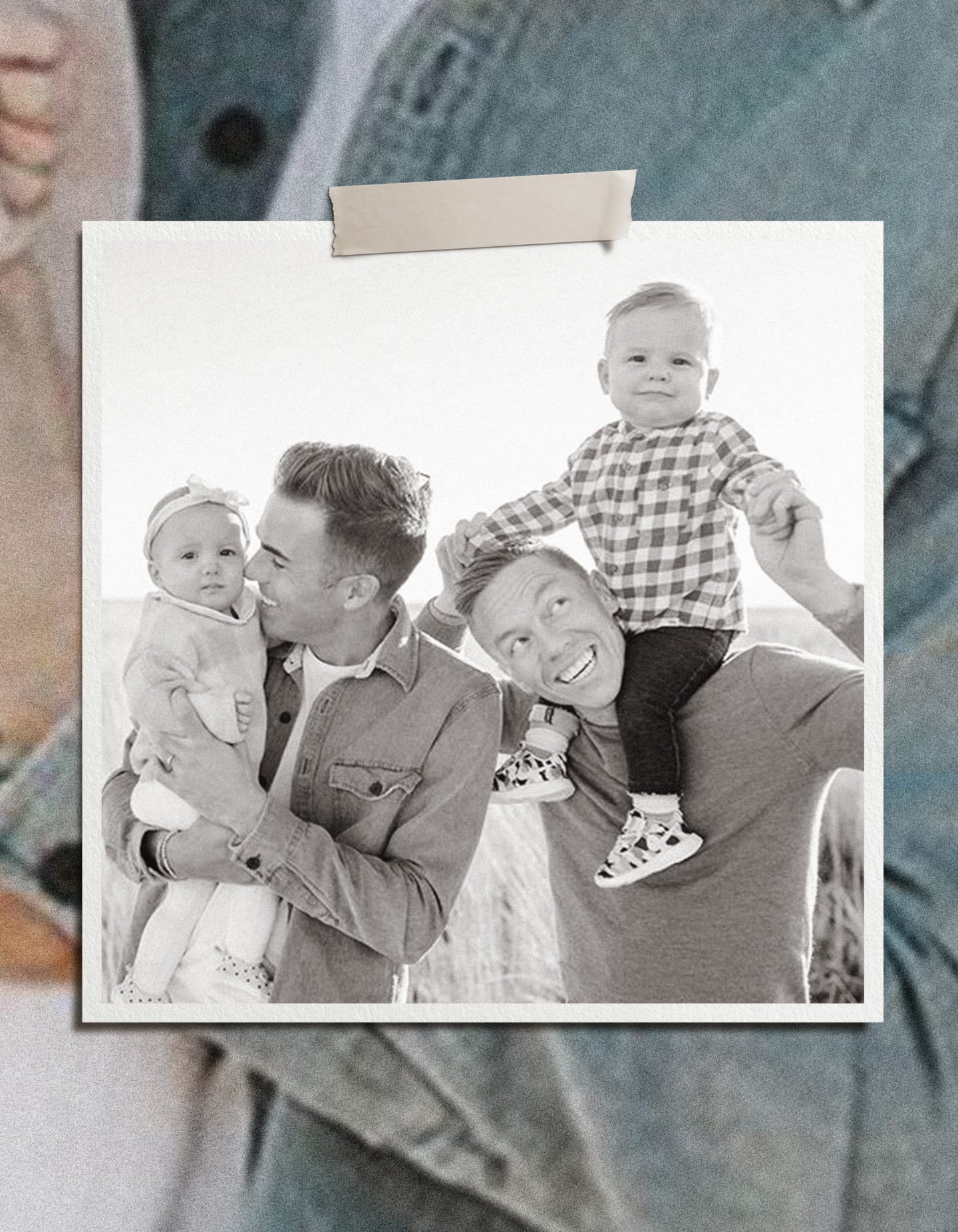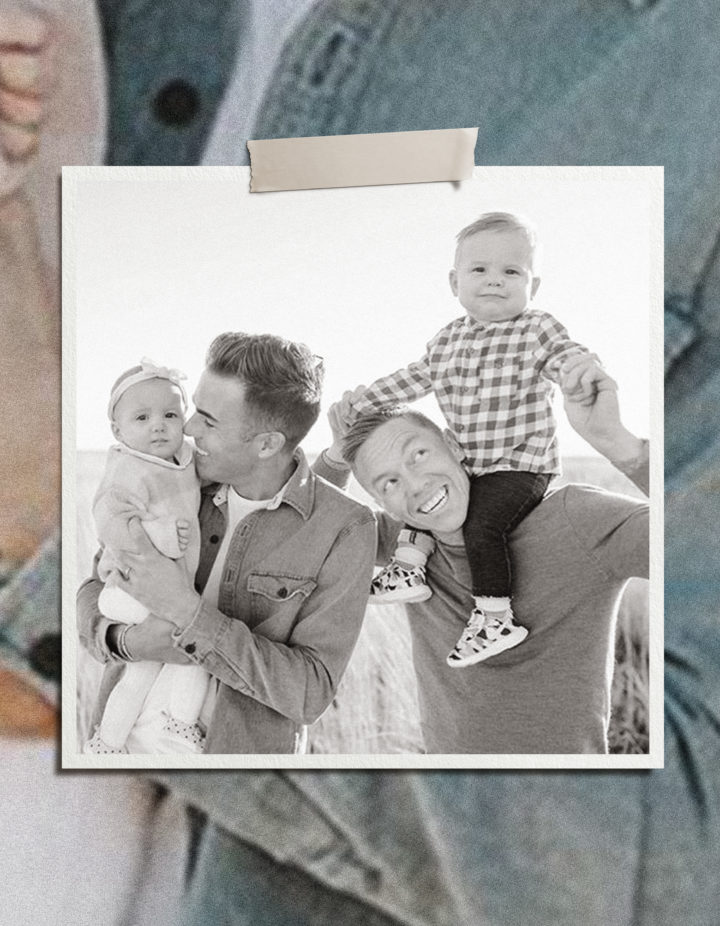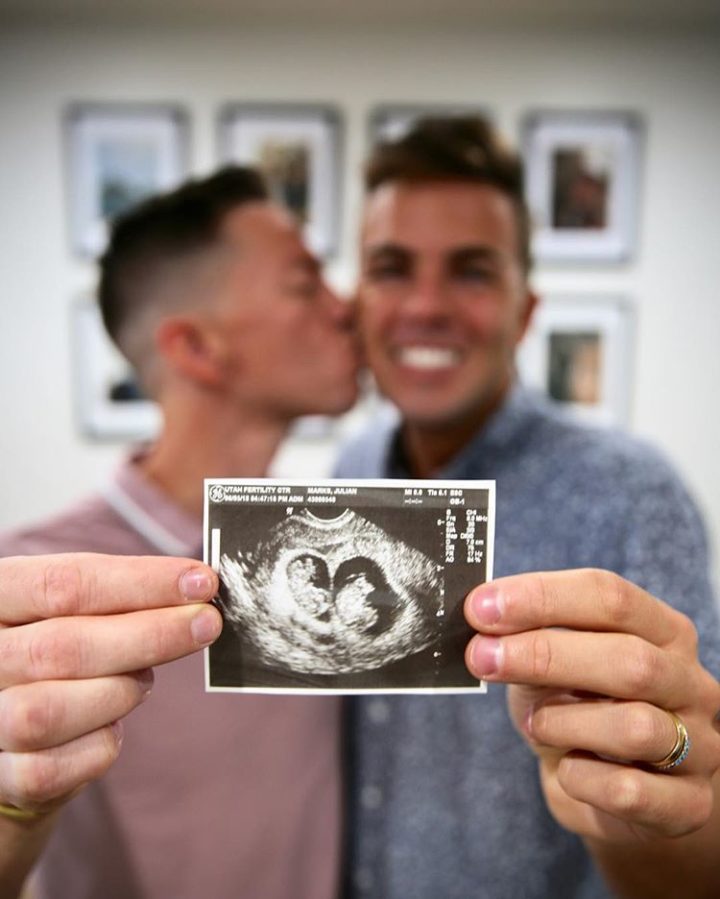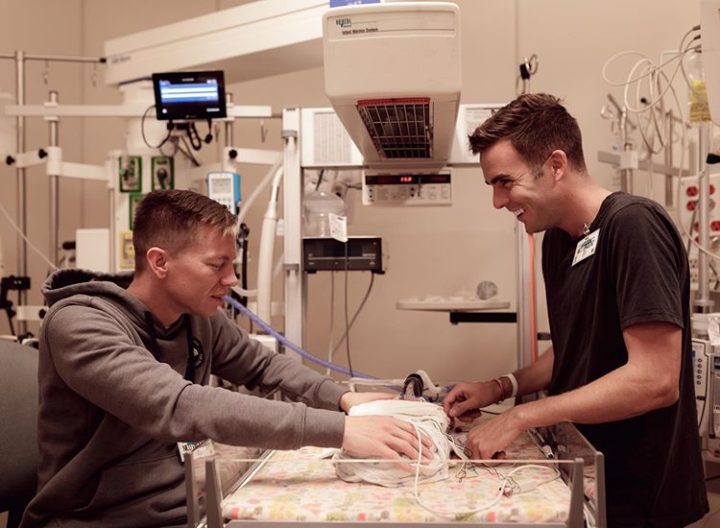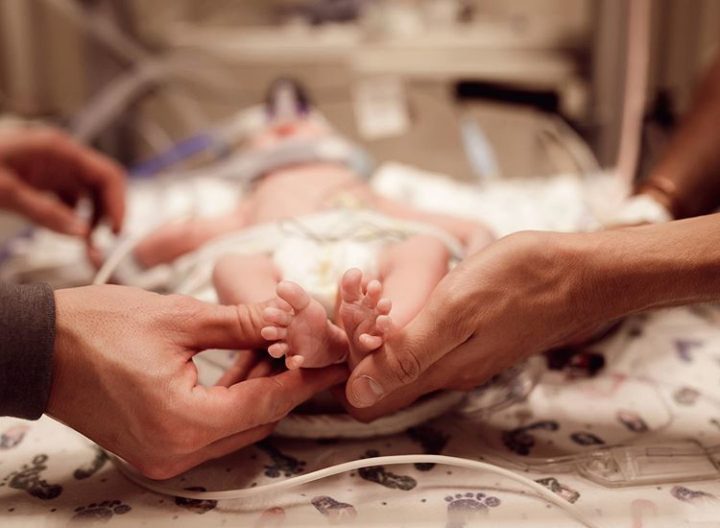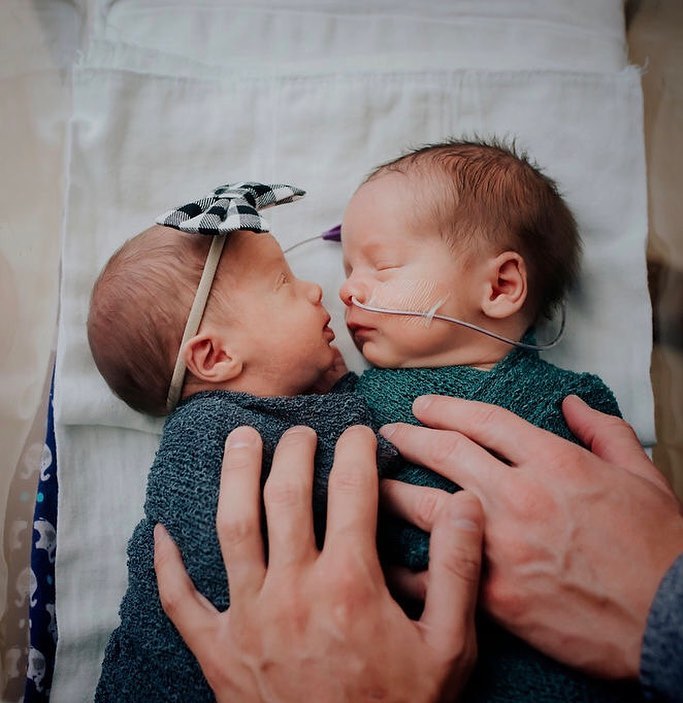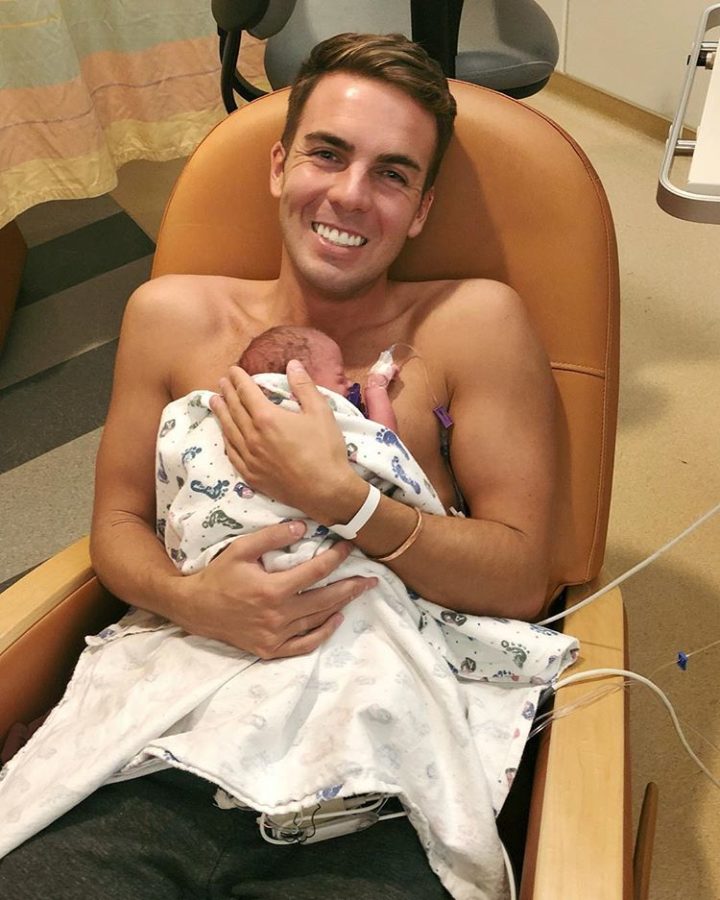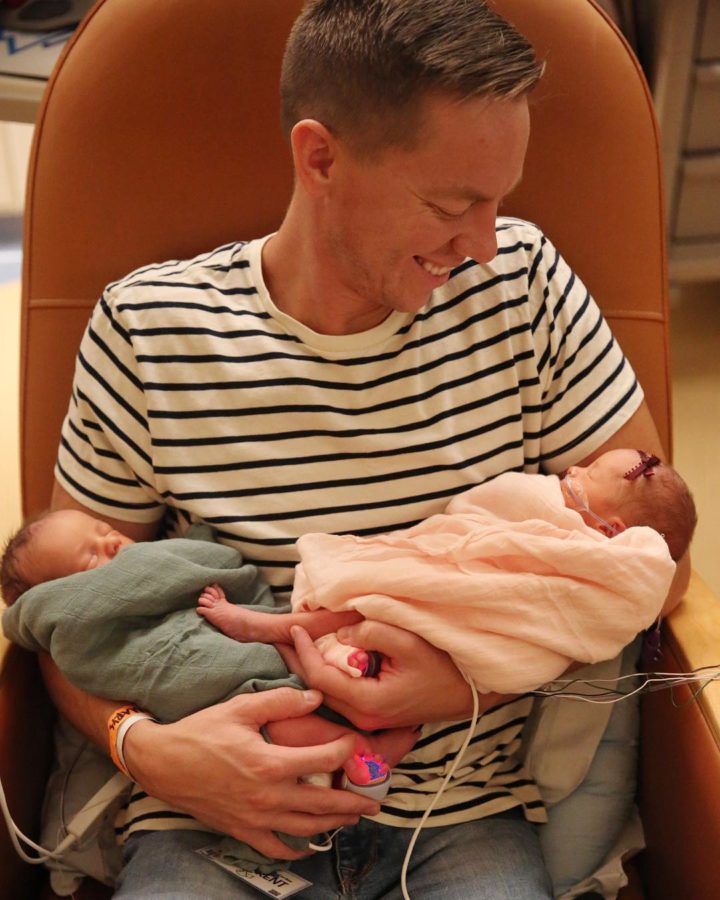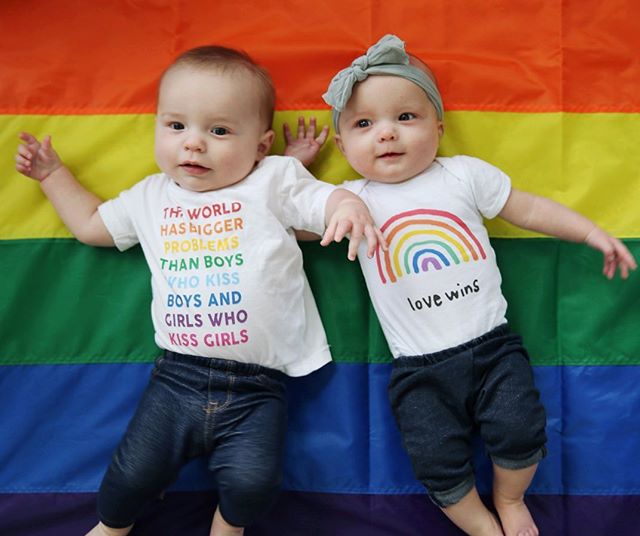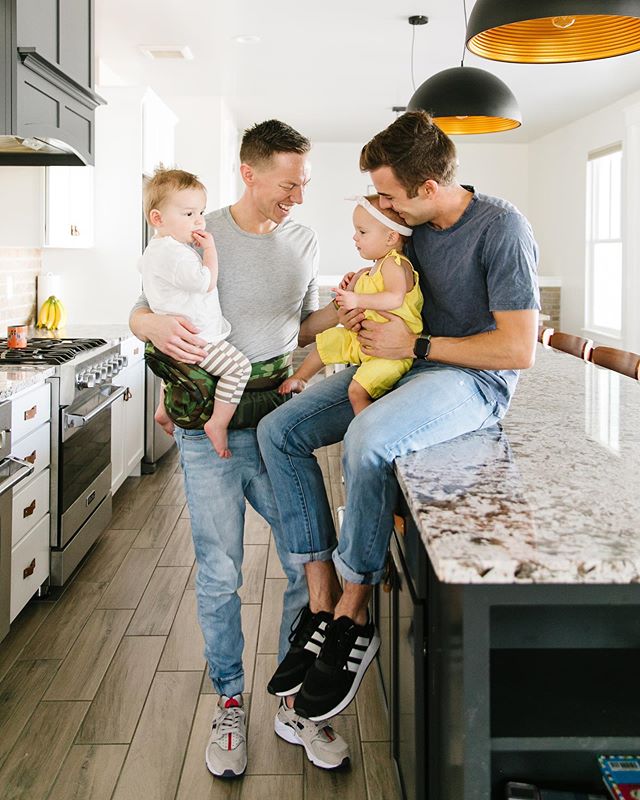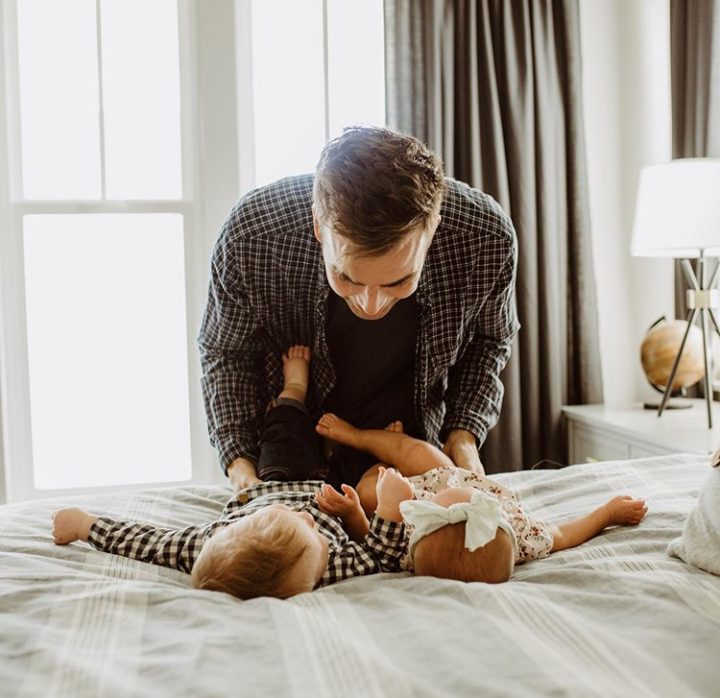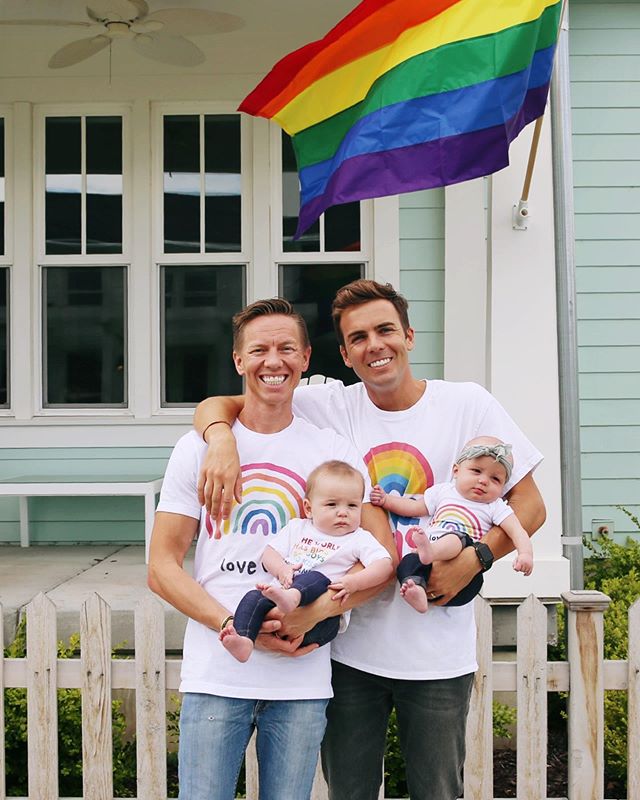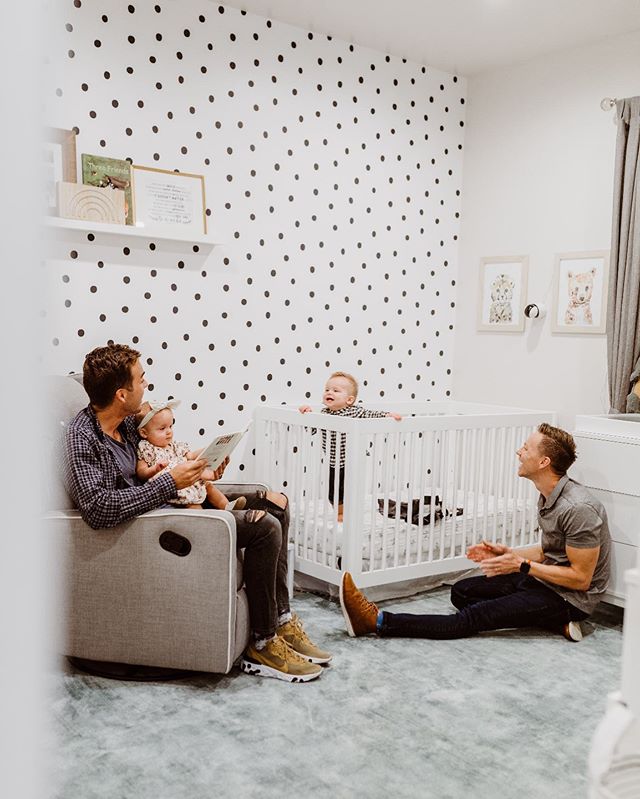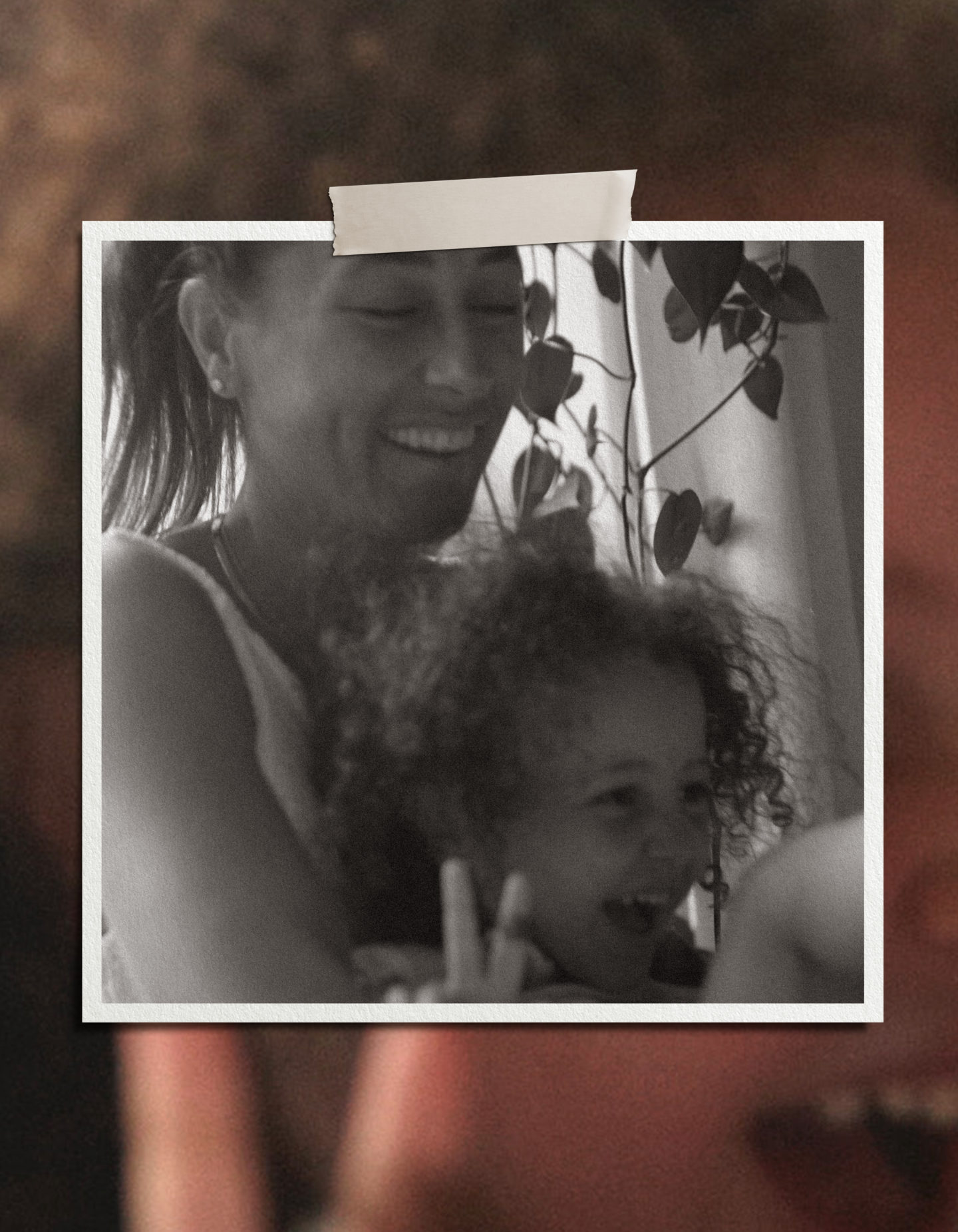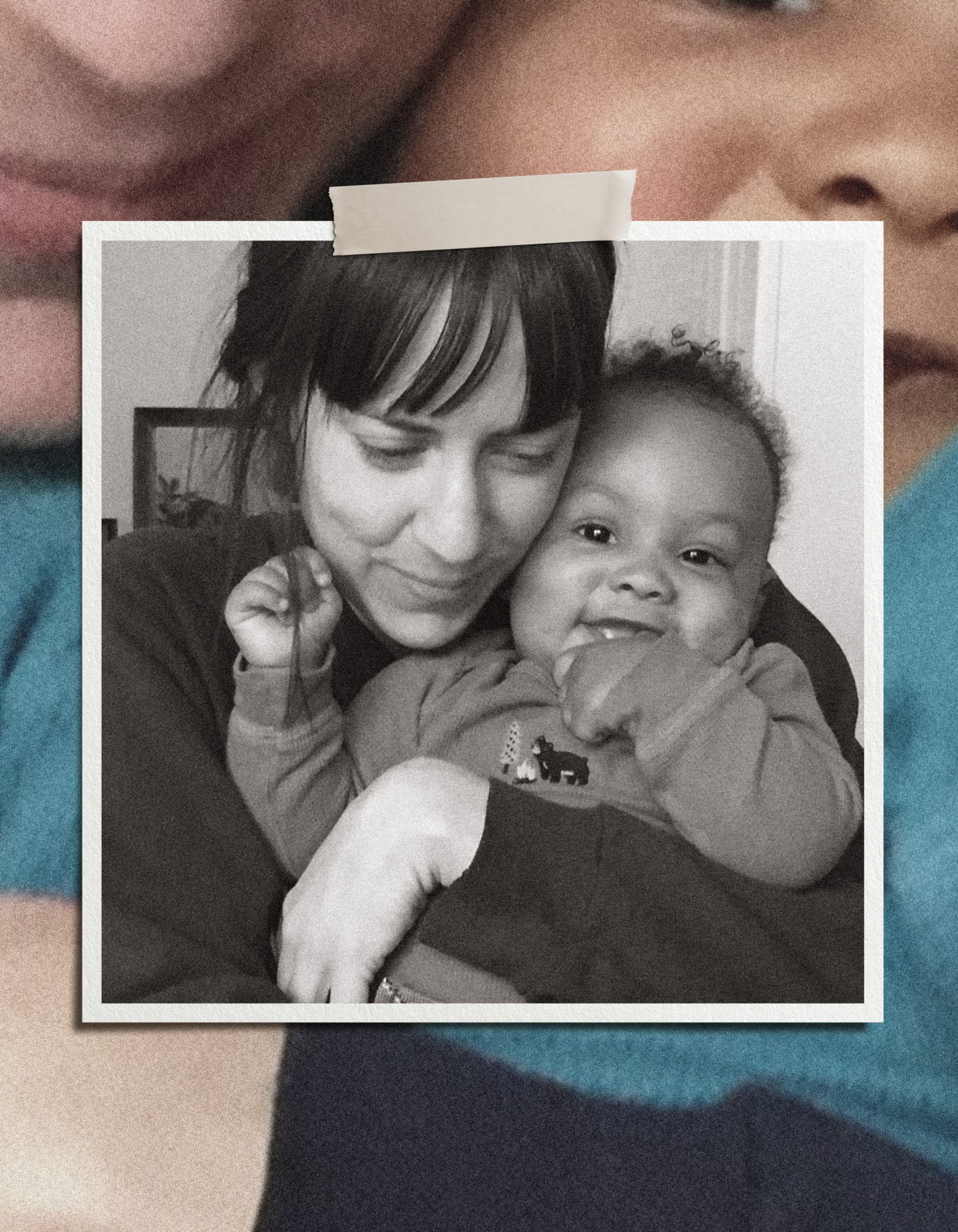Jeffrey and I met about four-and-a-half years ago. We spent the first few years of our marriage traveling the world. We spent time in Africa at an orphanage, in Europe and throughout Southeast Asia. Then we decided we wanted a family, so we put traveling on hold to start saving money. We also started researching the surrogacy process. We met with a fertility center to see what we needed to do, and before we knew it, we were creating embryos through an egg donor we found online. It was like the Tinder of baby pictures for egg donors. We were swiping left, swiping right, intensely judging people, and finally we found an anonymous donor where we knew her basic biographic and genetic information.
We had a hard time finding a surrogate. We live in Utah, which is a really conservative, Mormon state. They’re not only opposed to gay marriage but to surrogacy in general. We went through 35 surrogates who either refused to meet with us or said no because we were gay. We’re both former Mormons, and when the church came out strongly against gay marriage, we really struggled with it. It fractured our families. It’s hard to be told no time and time again. It makes you feel like you’re not worthy. People don’t feel like you deserve to have kids of your own.
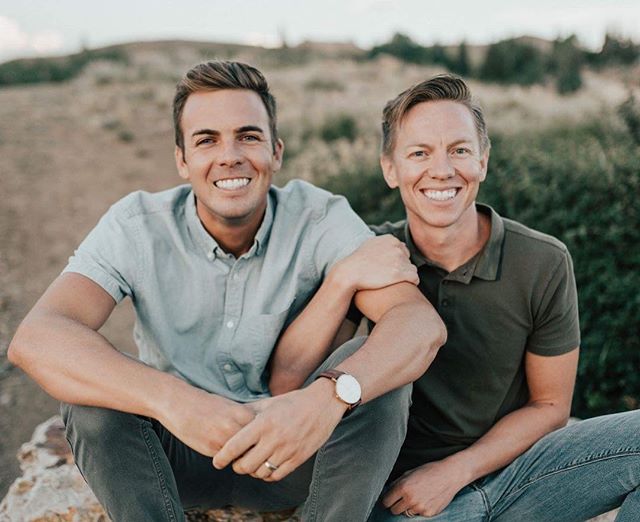
All photos courtesy of Bryce Abplanalp
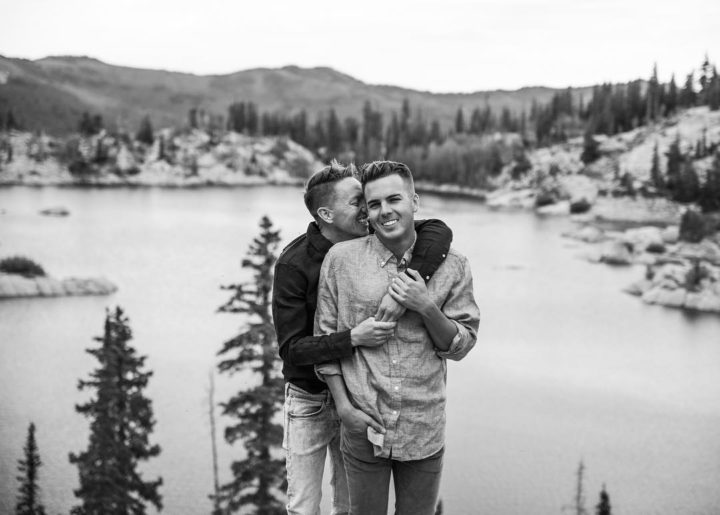
Finally someone accepted us. We met her and she started on the meds, but her uterus didn’t thicken the way it should have. We did a few rounds, but her body didn’t respond. So we started the entire process again. We found another surrogate and it started working after a few cycles. The fertility center told us to transfer two embryos (we had nine). We used one embryo from each of us. We were lucky that they both took and we were expecting twins! We had a pretty uneventful pregnancy so far, but then our surrogate got a steroid shot for the babies’ lung development and it triggered labor at 34 weeks. Our twin girl and boy, Larue, 4lbs, and Ridge, 6lbs, arrived on November 27. After spending about 12 days in the NICU, both twins, now over a year, are healthy.
We went through 35 surrogates who either refused to meet with us or said no because we were gay.
Our surrogate had a lot of complications after the birth. During delivery, she had a natural, unmedicated vaginal birth, except afterwards her placenta didn’t come out. Normally they would do c-section if they knew the patient had Placenta Accreta, which is when the placenta grows into the uterus, but her previous two births were fine. They tried multiple D&C’s to get the placenta out, and they thought they got it all, but two weeks later she still wasn’t feeling well, even months later. She was literally bleeding four months later. Ultimately they had to do a hysterectomy about a month ago.
The couple’s path to parenthood:
It goes without saying that we felt a tremendous amount of guilt about what happened. She gave us this beautiful gift and made this major sacrifice. It’s awesome but it’s hard for us to handle sometimes. We felt really guilty about it. Of course now that we have twins, we might be done, anyway. It’s really hard. And do we really want to spend another $50,000 to $60,000 on another birth? Maybe it’s better to put that money into their college funds. We would also adopt. Right now we just want to focus on getting our kids to sleep through the night.
A lot of people ask us why we’re choosing to raise our family in conservative Utah. I’d say the stigma is still pretty severe and that we have as many supporters as detractors all told. We get very negative comments about our family, but we also get incredibly supportive comments. It solicits a lot of positivity. Our families are both supportive. For being as Mormon as Utah is, it also has a good and strong gay community and we’ve met a lot of families similar to ours. We’re all just trying to raise kids in this world and do the best we can. We considered California and thought maybe it would be more inclusive, but we also felt that we could serve a higher purpose by staying here and being visible. A lot of gay youth in Mormonism commit suicide. Utah has one of the highest rates in the nation, especially for LGBT kids. If we can stay here and shine a light, maybe we can help. I mean we never thought that we could be gay and get married and have kids, and here we are.
